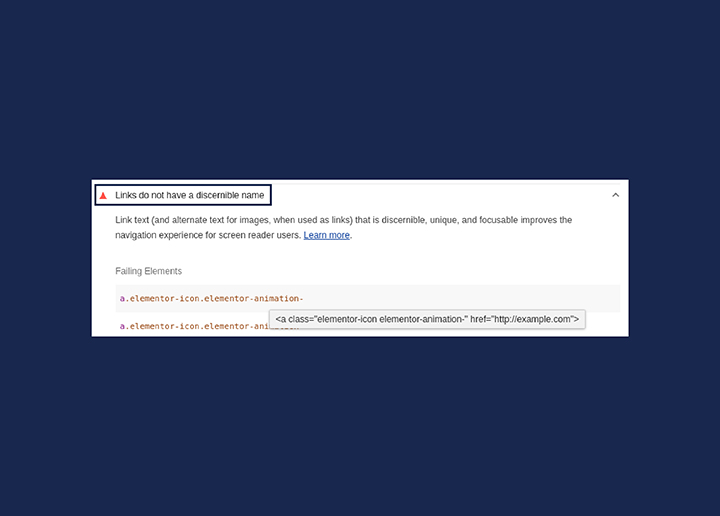Vous êtes-vous déjà demandé pourquoi le classement de votre site Web dans les moteurs de recherche n'est pas aussi élevé que vous le souhaiteriez ? Cela pourrait être dû à quelque chose d'aussi simple que les mots vides utilisés dans votre contenu. Cet article explique comment les mots vides peuvent avoir un impact sur le référencement et ce que vous pouvez faire pour y remédier.
Contenu
ToggleQu'est-ce qu'un mot d'arrêt ?
Un mot d'arrêt est un mot fréquemment utilisé dans les requêtes de recherche mais qui n'a que peu ou pas de signification. Les mots d'arrêt sont généralement des mots courts et courants, tels que "le", "est", "à" et "de".
Bien que les mots vides n'aient aucune signification, ils peuvent affecter le référencement en ayant un impact sur la densité des mots clés d'une page. Si une page présente une forte densité de mots vides, il peut être difficile pour les moteurs de recherche de déterminer la pertinence de la page. Par conséquent, la page peut être moins bien classée dans les résultats de recherche.
Pour éviter cela, il est important d'utiliser les mots vides avec parcimonie sur votre site Web. Ne les utilisez que lorsque cela est nécessaire, et mélangez-les pour qu'ils n'aient pas trop d'impact sur la densité de vos mots-clés.
Comment peuvent-ils affecter le référencement ?
Les mots d'arrêt sont des mots couramment utilisés dans le langage courant, mais qui ont peu de sens. Ils sont souvent utilisés pour relier d'autres mots dans une phrase et, à ce titre, ils peuvent affecter la manière dont les moteurs de recherche interprètent une page.
Si une page est remplie de mots vides, il peut être difficile pour un moteur de recherche de comprendre le contenu de la page. La page peut donc être moins bien classée dans les résultats de recherche, voire être totalement exclue de l'index de recherche.
Pour éviter cela, il est important d'utiliser les mots vides avec parcimonie sur votre site Web. Ne les utilisez que lorsque cela est nécessaire et veillez à ce que le reste de votre contenu soit clair et concis. Cela contribuera à ce que vos pages soient correctement indexées et classées par les moteurs de recherche.
Comment éviter les mots d'arrêt ?
Il existe plusieurs façons d'éviter les mots vides dans votre contenu :
1. Utilisez des synonymes : au lieu d'utiliser le même mot à plusieurs reprises, essayez d'utiliser un mot différent qui signifie la même chose. Par exemple, au lieu de dire "le gros chien", vous pouvez dire "le grand canidé".
2. Utilisez des mots apparentés : Si vous ne pouvez pas trouver de synonyme pour un mot d'arrêt spécifique, essayez d'utiliser un terme connexe. Par exemple, au lieu de dire "Je suis allé courir", vous pouvez dire "Je suis allé faire un jogging".
3. Utilisez un langage spécifique : Soyez aussi direct que possible dans vos écrits. Au lieu de dire "nous sommes sortis manger", vous pourriez dire "nous sommes sortis dîner".
4. Utilisez la voix active : La voix passive comprend souvent des mots vides, essayez donc d'utiliser la voix active chaque fois que possible. Par exemple, au lieu de dire "C'est moi qui ai lancé la balle", vous pouvez dire "J'ai lancé la balle".
5. Évitez les phrases : Les phrases telles que "afin de", "en raison du fait que" et "ainsi que" sont souvent inutiles et peuvent être réécrites sans elles. Par exemple, au lieu de dire "Pour aller au magasin, j'ai dû marcher", vous pouvez dire "J'ai marché jusqu'au magasin".
Conclusion
Les mots d'arrêt peuvent avoir un impact significatif sur le référencement, et il est essentiel d'en tenir compte lors de l'optimisation de votre contenu. En comprenant ce que sont les mots d'arrêt et comment ils peuvent affecter votre classement dans les moteurs de recherche, vous pouvez créer un contenu en ligne plus efficace qui vous aidera à atteindre le sommet des résultats des moteurs de recherche. En outre, en évitant d'utiliser inutilement les mots d'arrêt dans votre contenu, vous serez en mesure de vous assurer que votre site Web reste pertinent et, en fin de compte, visible pour les clients potentiels.
Vous cherchez des services de rédaction de contenu? Contactez nous !


















